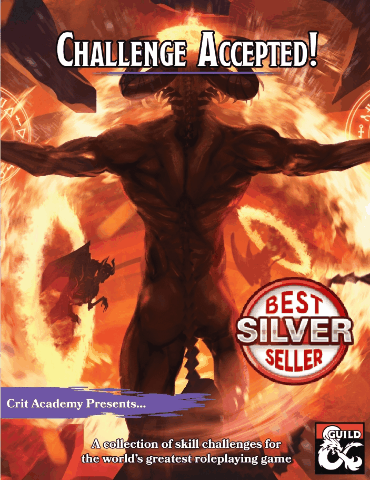D&D: Here's To Crime: A Guide to Capers and Heists
- Justin Handlin

- Jan 8, 2022
- 7 min read
Dungeons & Dragons does a lot of things great. But there is one particular detail that is lacking. Any rogue player will tell you the rules for running heists are nearly non-existent. Well, Jimmy Meritt creator of Here's to Crime: A Guide to Capers and Heists has you covered! Oh boy, did he nail it! This small but mighty product will have the thieves, rogues, and masterminds in your group trembling with excitement!
Films and shows like “Ocean’s 11”, “Mission: Impossible”, and “Leverage” make capers incredibly entertaining to watch, but it can be difficult to capture that same excitement at the gaming table.
Planning sessions can devolve into tedium, and the caper itself can feel like a normal dungeon crawl, without twists or surprises.
Well Here’s To Crime: A Guide to Capers and Heists helps you to evoke the energy and mood of our favorite heists and capers by breaking it into three steps with four possible approaches that form the basis of their caper. Below is a high-level view. Join us live as we work our way through and discuss in detail this must-have Dmsguild supplement.
Phase One:
Players choose from a collection of approaches that will form the base of their caper. Once the base is set, the party preps their approach. The supplement guides the characters through planning and the creation of their scheme. This makes it specific enough to influence the narrative but leaves it open to surprises.
Phase Two:
During the second phase, the characters will run the caper. This is exciting as it starts in the middle of the action, the player's success or failures during the first phase determine if they started off on the right foot. The party is then guided through challenges, which they’ll need to overcome through a blend of skills, combat and special flashback mechanics that mimics the feel of your favorite stories.
Phase Three:
The third and final phase is where the party’s plans come together…or fall apart. Together they hopefully execute their plan like clockwork, working together to get the score and escape before anyone is the wiser. Or if they are caught, escape in a glorious exit. I find that sometimes you can't help but go out with a bang.
CAPES & CROOKS A 5e Superhero RPG
Available January 15th
on Drive Thru RPG and www.critacademy.com
Character Concept: Naenan Fallpride, Female Elf
Description: She tends to wear a green tunic over her dusty white-colored trousers and shirt. Her skin is fair and her fingers are delicate and long. Her dark hair is slicked back into a classic pompadour. Her eyes are emerald.
Personality: While she acts bluntly, she is far gentler than she would appear. Though, under her gentler side lies a very good compulsive liar and kleptomaniac.
History: Gifted from a young age, Naenan studied away from home. After coming to the age of reason, Naenan took it upon herself to study the contracts and binding magic in its entirety; because of this, she was labeled a dark omen and banished from her homeland. She routinely visits covens of witches seeking good among the evil but complains that many are fraudulent and lack true knowledge or power.
Motivation: She seeks to prove that study of the dark arts isn’t what makes someone evil, but the intent of the user and manipulation of dark creatures are at fault.
Monster Variant: Mastermind Thief
Origin: Vampire Spawn
Lost Features: resistances, regeneration, vampire weaknesses, claws, bite
New Features:
Cunning Action. One each of its turns, the mastermind can use a bonus action to take the Dash, Disengage, or Hide action.
Evasion. If the mastermind is subjected to an effect that allows it to make a Dexterity saving throw to take only half damage, the mastermind instead takes no damage if it succeeds on the saving throw, and only half damage if it fails.
Master of Tactics. The mastermind can use the Help action as a bonus action. In addition, when it uses the Help action to aid an ally in attacking a creature, the target of that attack can be within 30 feet of it.
Sneak Attack (1/Turn). The mastermind deals an extra 7 (2d6) damage when it hits a target with a weapon attack and has advantage on the attack roll, or when the target is within 5 feet of an ally of the mastermind that isn’t incpacitated and the mastermind doesn’t have disadvantage on the attack roll.
ACTIONS
Shortsword. Melee Weapon Attack: +6 to hit, reach 5 ft., one target. Hit 6 (1d6 +3) piercing damage.
Hand Crossbow. Ranged Weapon Attack: +6 to hit, range 30/120 ft., one target. Hit: 6 (1d6+3) piercing damage, and the target must succeed on a DC 14 Constitution saving throw or be poisoned for an hour. If the saving throw fails by 5 or more, the target is also unconscious while poisoned in this way. The target wakes up if it takes damage or if another creature takes an action to shake it awake.
REACTIONS
Uncanny Dodge. When an attacker that the mastermind can see hits it with an attack, it can use its reaction to halve the attack’s damage against it.
Encounter: False Defenders
Clovis Whitfoot a male spy and leader of the White Rabbits thieves guild, needs some assistance. Despite being thieves, the White Rabbits aren’t too bad. Clovis informs the characters that they mostly repair locks, tools, and other small trinkets and keep out dangerous critters and bandits out of the small village. A character that asks around town and succeeds on a DC 12 Intelligence (Investigation) check quickly learns this to be true from the locals.
A new band of “Defenders” has entered the city. Claiming to be holy defenders of justice. Now, while Clovis and his team aren’t perfect law-abiding citizens, they certainly are not as detestable as the frauds known as the White Capes. Sure, in public they act great and benevolent. But in private, they take bribes, beat and mistreat any who they claim has turned to darkness.
Clovis believes that in their headquarters, their leader, a silver-tongued female elf veteran named Sorsasta, keeps detailed records of both their legal and illicit activities locked in a safe. The party must gather evidence and recover the documents to prove they are dangerous to keep in the city. Also, getting rid of Clovis’ competition and keeping him and his thieving crew gainfully employed. He sees this as “an absolute win.”
Magic Item: Superior Thieves’ Tools
Wondrous, Uncommon
This set of tools includes superior crafted thieving items: a small file, a set of lock picks, a small mirror mounted on a metal handle, a set of narrow-bladed scissors, and a pair of pliers are all crafted with excellent precision.
This reduces the wear and tear and the likelihood of damage during use. Proficiency with these tools lets you add your Proficiency Bonus to any Ability Checks you make to Disarm traps or open locks. The superior craftsmanship of the tools grants you a +1 bonus to all ability checks that use the tools.
The thieves’ tools can be used to imbue a lock or passageway with arcane magic. As an action, you can cast the arcane lock spell from the tools. This feature cannot be used again until the next dawn.
Dungeon Master Tip: All Part of the Plan - Cards
Characters in the world of D&D are not reflective of their players. A great example of this is a player who creates a high intelligence character such as a wizard. Because of this, there should be times where a genius-level creature or a seedy rogue may have put plans into action ahead of a complex plan. This is purely from a narrative perspective.
I think adding “All Part of the Plan” cards is a great way to include this in your games. When the characters come across a challenge, a card can be played to help them overcome a particular challenge with an auto success. Of course, you only give out one of these cards to each player. Think of it as an old “get out of jail free” card. These are dealt out freely.
Let’s talk about a few examples:
I know a guy/girl. This card is simple, an ally of the character (likely off-screen) made an agreement with the character to help in case they ended up in a sticky situation. This exact sticky situation.
Wrong Place/Right Time. This card allows the characters to easily escape an encounter that would likely reveal them. A common example would be running into patrols and it turns out one is an old friend and safely allows you to escape notice.
Just what I needed. The characters are caught in a situation. Whether it’s forethought or complete happenstance, they have exactly what they need to overcome a challenge.
Player Tip: Minor Illusion - Better than Disengage
Most players hate to feel like they are wasting their action when it comes to taking the disengage action to retreat. What if I told you there was a better way?
Well, if you can cast minor illusion cantrip at least there is. While disengage allows you to avoid opportunity attacks, the enemy can still see where you’re moving to. With minor illusion you can create a barrier of your chosen type, then retreat.
Opportunity attacks require that the enemy be able to see the target to make an attack. On top of it, the illusory wall will block the line of sight allowing you to duck and cover. Additionally, it’s very possible the wall will force a loss of movement to walk around it, or waste an action to confirm it's an illusion.
Either way, Minor Illusion is the better Disengage.
Cookie swarms? Bubble traps? A three-story tree house? The Grandmother Tree is a whimsical adventure about friendship aimed at elementary kids (and kids at heart) who love the problem-solving and adventuring part of playing Dungeons & Dragons and enjoy resolving encounters with less combat.
Winner: mkcnarf
Didn't win? Sign up for our Newsletter and be entered to win our weekly giveaway.
Thank you for reading our blog. If you enjoy the content and want to support us, visit our store or follow us on social media, join us on discord, youtube, and leave us a review.
Keep your blades sharp and spells prepared heroes!
*Crit Academy is an Affiliate of Amazon, DMsguild and DriveThruRPG*



























Comments